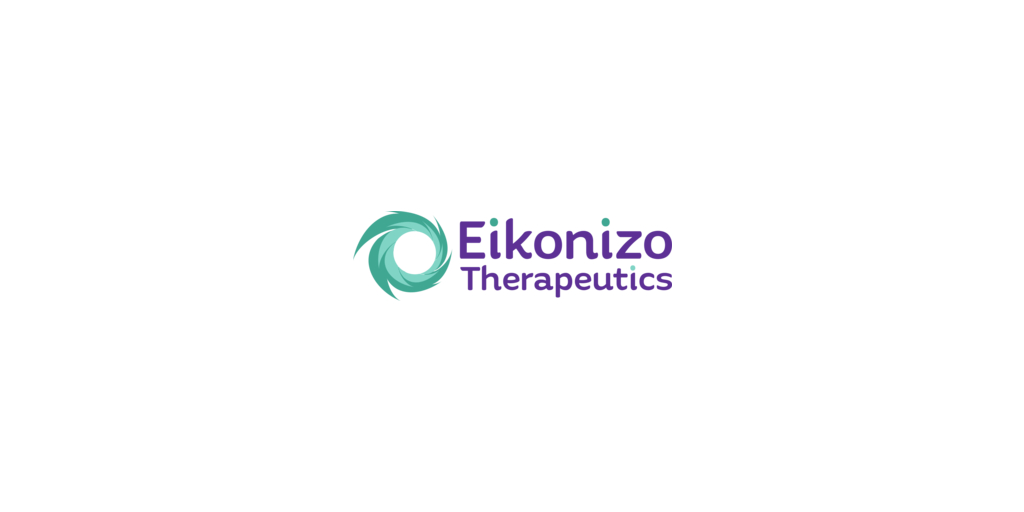
Eikonizo Therapeutics Highlights Breakthrough Preclinical Findings Demonstrating the Disease-Modifying Potential of Selective HDAC6 Inhibitors in ALS and FTD
Eikonizo Therapeutics, a biopharmaceutical company focused on developing disease-modifying therapies for neurodegenerative and cardiorenal diseases, has announced the advance online publication of groundbreaking preclinical research in the prestigious peer-reviewed journal Brain. The newly published data reveal that the company’s highly selective and brain-penetrant HDAC6 inhibitors have shown significant therapeutic potential in preclinical models of amyotrophic lateral sclerosis (ALS) and frontotemporal dementia (FTD).
This milestone publication underscores a major step forward for Eikonizo in its mission to develop transformative therapies aimed at halting or reversing the course of devastating neurodegenerative diseases. The company also revealed plans to present a subset of this research at the upcoming ALS Therapy Development Institute (TDI) Summit on October 17, 2025. The oral presentation, titled “The Evolution of HDAC6 as a Potential Therapeutic Target for ALS,” will delve deeper into the science, mechanisms, and translational potential behind the company’s HDAC6 inhibitor platform.
Groundbreaking Findings Published in Brain
The article, titled “A Next-Generation HDAC6 Inhibitor for Amyotrophic Lateral Sclerosis and Frontotemporal Dementia” (James et al., Brain, https://doi.org/10.1093/brain/awaf380), details a series of compelling discoveries that strengthen the therapeutic rationale for selective HDAC6 inhibition as a promising treatment avenue for ALS and FTD.
HDAC6, or histone deacetylase 6, plays a central role in regulating cellular processes such as protein homeostasis, axonal transport, and stress response. Dysregulation of these pathways contributes to the pathological accumulation of misfolded proteins, neuronal dysfunction, and neuroinflammation that characterize ALS and FTD.
Eikonizo’s research demonstrates that highly selective HDAC6 inhibition can restore cellular balance and improve neuronal function. Specifically, the company’s preclinical studies showed that targeting HDAC6 mitigated a range of disease-related defects, including:
- Proteostasis and Axonal Transport Deficits: Treatment improved the movement of essential cellular components along axons, which is crucial for maintaining neuronal health and communication.
- Oxidative Stress and Neuroinflammation: Selective inhibition of HDAC6 reduced oxidative damage and inflammatory responses in preclinical models, both of which are major contributors to neurodegenerative progression.
- TDP-43 Pathology Correction: The study revealed a reduction in mislocalized TDP-43—a protein whose abnormal aggregation is a hallmark in nearly all ALS cases and about half of FTD cases. Notably, HDAC6 inhibition restored some of TDP-43’s normal cellular function, a key indicator of disease modification.
In human motor neuron cultures, these effects translated into improved cell survival and functional recovery, suggesting the therapeutic mechanism is not limited to animal models but may extend to human neurobiology as well.
From Bench to Animal Models: Translational Impact of EKZ-438 and EKZ-102
The study also focused on Eikonizo’s proprietary HDAC6 inhibitor series, including the tool compound EKZ-438 and its optimized successor, EKZ-102, the company’s lead development candidate. EKZ-438 was shown to improve motor performance and reduce disease biomarkers in preclinical animal models of ALS.
In particular, animals treated with EKZ-438 demonstrated:
- Improved Motor Function: Measured through standardized performance-based tests, animals showed clear and measurable gains in muscle coordination and movement, reflecting potential functional benefits of HDAC6 inhibition.
- Reduction in Plasma Neurofilament Light Chain (NfL): Plasma NfL, a validated biomarker of neuronal damage and disease progression, was significantly reduced following treatment. This finding provides strong evidence that HDAC6 inhibition can exert disease-modifying effects rather than merely symptom management.
These encouraging outcomes provide a compelling foundation for advancing Eikonizo’s lead candidate, EKZ-102, into clinical development. EKZ-102 distinguishes itself as a first-in-class, orally available HDAC6 inhibitor with exceptional potency, selectivity, and central nervous system (CNS) penetration.
The compound has been specifically optimized to cross the blood-brain barrier efficiently, ensuring sufficient drug exposure in the brain and spinal cord—an essential requirement for treating ALS, FTD, and other neurodegenerative diseases. Based on the strength of these results, Eikonizo plans to initiate Phase 1 clinical trials of EKZ-102 in 2026.
Expanding the Therapeutic Horizon: From ALS and FTD to Parkinson’s Disease
Building on these achievements, Eikonizo Therapeutics has been awarded a Phase 1 Small Business Innovation Research (SBIR) grant by the National Institute of Neurological Disorders and Stroke (NINDS). This competitive federal grant will support the continued development of EKZ-102, extending its evaluation into Parkinson’s disease (PD)—another major neurodegenerative condition with overlapping molecular pathways.

Emerging scientific evidence links HDAC6 inhibition to key pathological features of Parkinson’s disease, including mitochondrial dysfunction and α-synuclein aggregation. Both are central to neuronal death in PD, and targeting HDAC6 offers a potential means to restore mitochondrial quality control and prevent toxic protein accumulation.
The NINDS SBIR award not only provides critical funding but also represents a vote of confidence in Eikonizo’s therapeutic platform. It positions EKZ-102 as a potentially versatile disease-modifying therapy across multiple neurodegenerative indications.
Scientific Rationale: Why Target HDAC6?
HDAC6 is a unique enzyme that regulates the acetylation of non-histone proteins involved in cell structure, transport, and degradation of misfolded proteins. Unlike many other histone deacetylases, HDAC6 primarily functions in the cytoplasm, where it influences critical processes related to neuronal health.
In ALS and FTD, disruptions in axonal transport and protein clearance contribute to the buildup of toxic protein aggregates and neuronal degeneration. By selectively inhibiting HDAC6, Eikonizo’s compounds promote the acetylation of tubulin and other key substrates, restoring efficient axonal transport and facilitating the removal of damaged or misfolded proteins via the autophagy-lysosomal pathway.
This multi-faceted mechanism addresses the core biological dysfunctions driving disease progression—offering a more comprehensive therapeutic approach than traditional symptomatic treatments.
Preclinical Success Fuels Clinical Ambitions
The cumulative data presented in Brain provide a robust preclinical foundation for Eikonizo’s clinical strategy. The ability of HDAC6 inhibitors to impact multiple cellular pathways—proteostasis, inflammation, and mitochondrial health—suggests broad applicability across neurodegenerative conditions characterized by similar mechanisms.
Moreover, the reduction in plasma NfL observed in treated animal models serves as a quantifiable biomarker that could facilitate translational monitoring in future human trials. This biomarker-driven approach aligns with modern regulatory and clinical paradigms focused on measurable indicators of disease modification.
Eikonizo’s next milestone is the Phase 1 clinical trial of EKZ-102, slated for initiation in 2026. The study will evaluate safety, tolerability, pharmacokinetics, and early pharmacodynamic signals in healthy volunteers, paving the way for subsequent trials in ALS and FTD patients.
Industry and Scientific Community Response
The publication in Brain and upcoming presentation at the ALS TDI Summit have drawn attention from the broader neuroscience research community, highlighting Eikonizo’s growing leadership in the field of neurodegenerative drug discovery.
By targeting HDAC6 with precision, Eikonizo is advancing a therapeutic approach that diverges from traditional neuroprotective strategies, focusing instead on the underlying cellular dysfunctions common across neurodegenerative diseases. The implications of this work extend beyond ALS and FTD, offering hope for a unified therapeutic strategy against multiple age-related neurological disorders.
Leadership Perspective: Advancing Toward the Clinic
Commenting on the publication and the company’s broader progress, Rick Lundberg, President and CEO of Eikonizo Therapeutics, emphasized the significance of the findings and the company’s forward momentum:
“The findings published in Brain and presented at ALS TDI reinforce the promise of our highly selective HDAC6 inhibitors and position EKZ-102 to advance into human clinical trials as a potential disease-modifying strategy for ALS and FTD,” said Lundberg. “The SBIR award broadens that path into Parkinson’s disease, giving us the momentum to move EKZ-102 into the clinic in 2026 and generate the human data that matters for patients.”
His remarks reflect Eikonizo’s translational philosophy—bridging rigorous preclinical science with clinical development designed to deliver meaningful patient outcomes.
Eikonizo’s Vision for Neurodegenerative Therapeutics
Eikonizo Therapeutics’ work represents a growing movement in neuroscience research that seeks to redefine how neurodegenerative diseases are treated. Instead of managing symptoms, the company aims to address root biological dysfunctions to slow or stop disease progression.
With EKZ-102 poised for first-in-human testing, Eikonizo is strategically positioned to lead a new class of HDAC6-targeting therapeutics capable of addressing multiple diseases that currently lack disease-modifying treatments.
As the company prepares for its 2026 clinical debut, its ongoing collaborations with research institutions, funding agencies, and patient advocacy organizations will remain central to accelerating progress toward this goal.
The publication of Eikonizo Therapeutics’ preclinical research in Brain marks a pivotal moment in the development of next-generation neurodegenerative therapies. The demonstrated ability of HDAC6 inhibitors to restore proteostasis, improve neuronal survival, and reduce key disease biomarkers offers tangible evidence of disease-modifying potential in ALS and FTD.
Coupled with the NINDS SBIR award and upcoming presentation at the ALS TDI Summit, Eikonizo is entering a critical phase of growth and translation—poised to transform the treatment landscape for patients living with neurodegenerative disorders.
Through precision chemistry, robust biology, and a relentless focus on patient outcomes, Eikonizo Therapeutics is charting a new path toward therapies that do more than manage symptoms—they may finally alter the course of neurodegenerative disease.





